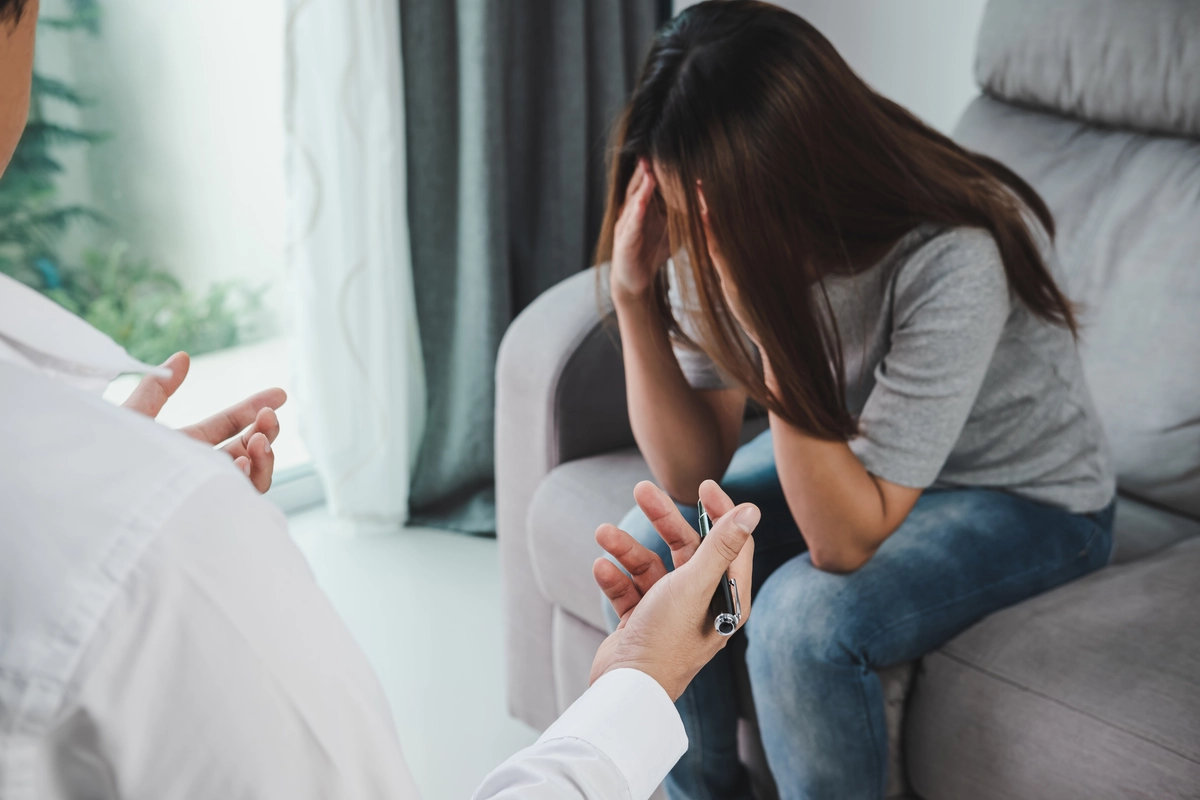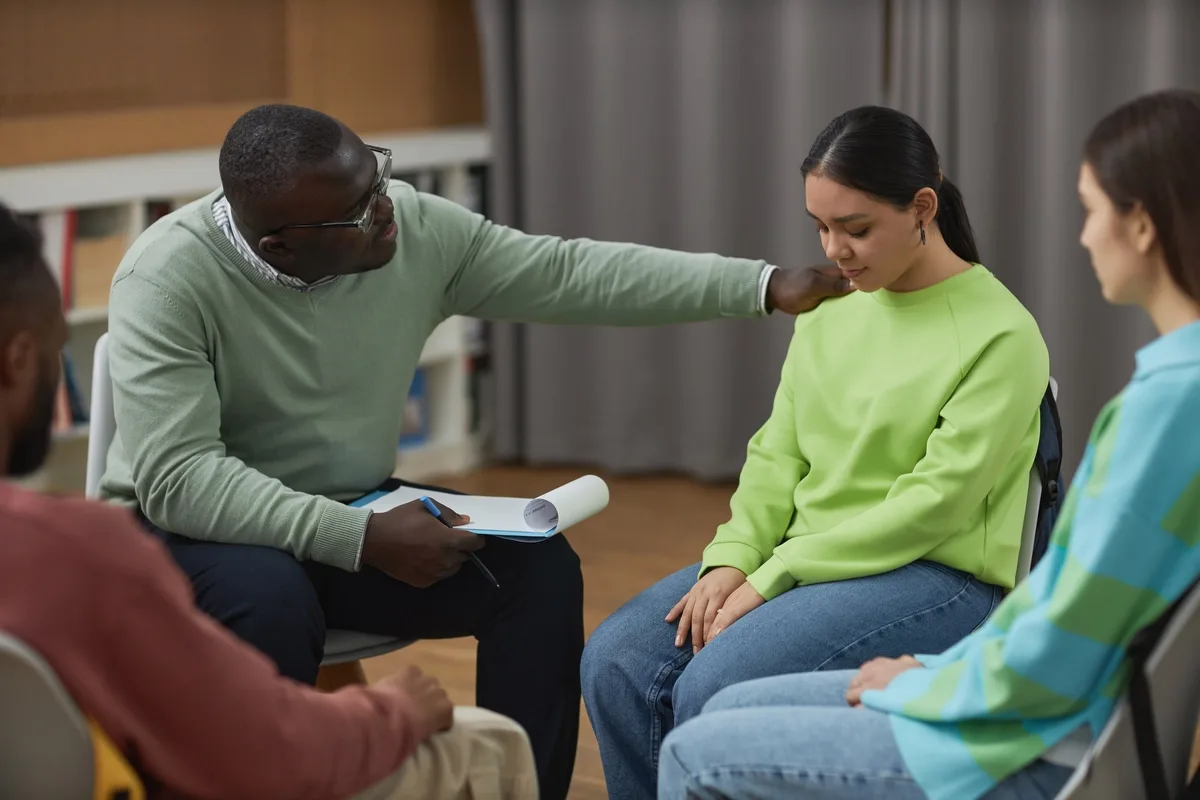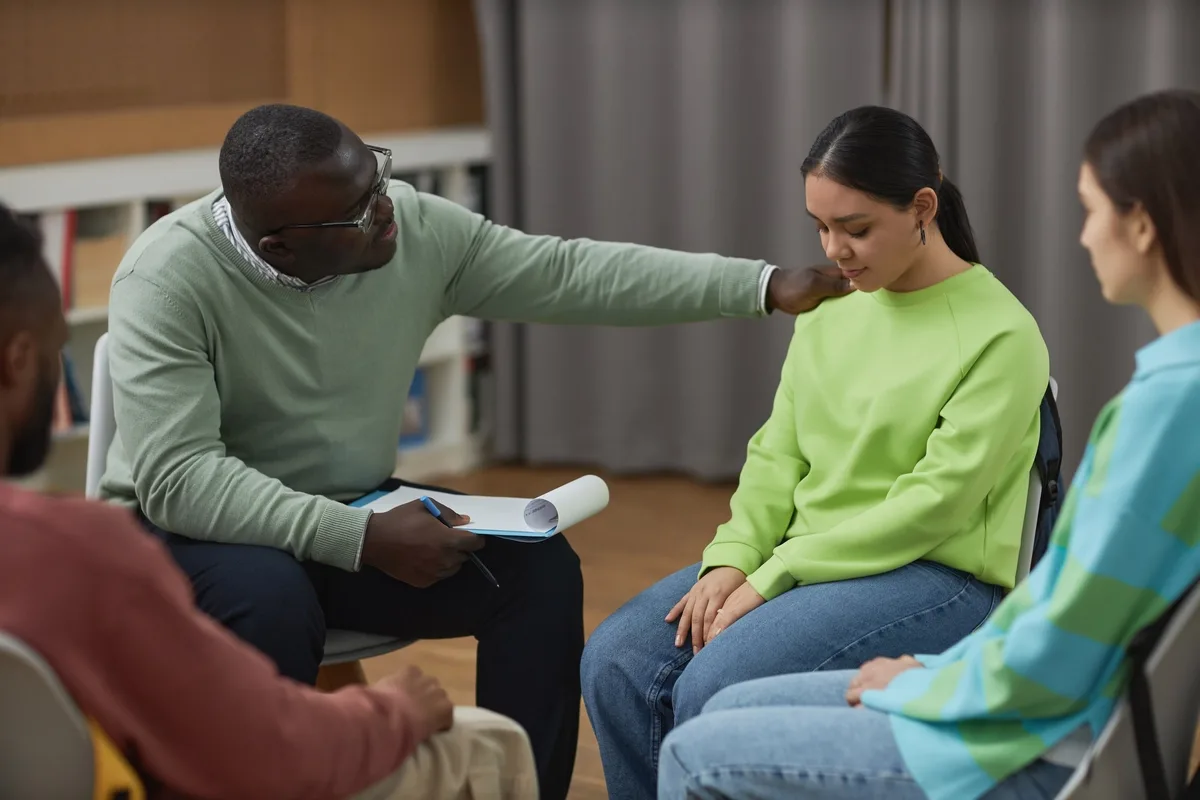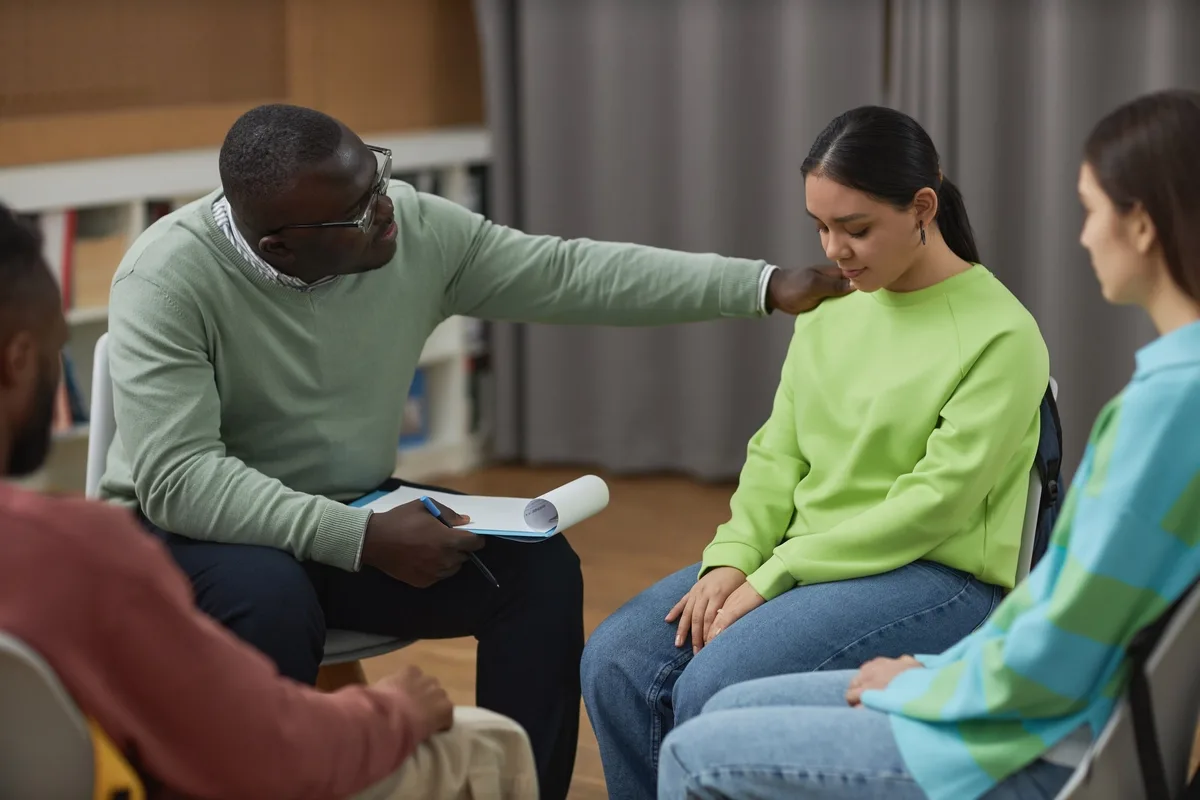24/7 Helpline:
(866) 899-221924/7 Helpline:
(866) 899-2219
Learn more about Anxiety Treatment centers in Mora
Anxiety Treatment in Other Cities

Other Insurance Options

BlueCross

Providence

Molina Healthcare

Cigna

Magellan

EmblemHealth

Optima

CareSource

Regence

Ceridian

BlueShield

Health Choice

Health Partners

Ambetter

Sutter

Sliding scale payment assistance

State Farm

United Health Care

Kaiser Permanente
Beacon

Dellwood Recovery Center
Dellwood Recovery Center is a private rehab located in Mora, Minnesota. Dellwood Recovery Center spe...

Serenity Manor
Serenity Manor is a private rehab located in Mora, Minnesota. Serenity Manor specializes in the trea...

New Mexico Behavioral Health
New Mexico Behavioral Health is a public rehab located in Mora, New Mexico. New Mexico Behavioral He...




Edgefield Recovery Center
Edgefield Recovery Center is a drug and alcohol rehab center located in Cheneyville, LA. They provid...

Healing Springs Ranch
Located in Tioga, Texas, Healing Springs Ranch is a center for treating addiction and mental health ...






























































































































































































































































































































































































































